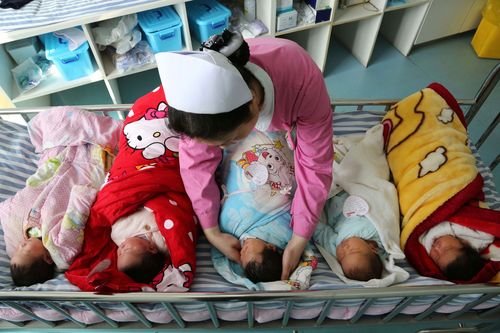China to allow couples to have up to three children in attempt to reverse falling birth rates

The Chinese government will allow couples to have three children, according to state-run news agency Xinhua, the latest easing of strict family planning policies as the country tries to avert a demographic crisis.
The Chinese Communist Party’s top leadership made the decision at a meeting on Monday, state media said, in a move designed to combat the country’s aging population.
State media did not say when the new policy would be implemented.
It comes just three weeks after Beijing published its 2020 census, which showed China’s population was growing at its slowest rate in decades.
According to China’s National Bureau of Statistics, the population rose by just 5.38% over the past decade — the slowest growth rate since at least the 1960s.
China’s one-child policy was introduced in 1979 and for more than 35 years limited couples to a single offspring, as the country tried to address overpopulation and alleviate poverty.
China’s economy has boomed in recent years and its demographic needs have changed. Today, the government is relying on a large, youthful work force to support high levels of economic growth.
In an attempt to avoid a demographic crisis, the Chinese government announced in 2015 it would loosen the birth restrictions to allow up to two children per family.
State-run media tried to drum up support for the campaign. In 2018, Communist Party mouthpiece People’s Daily published a full-page column titled, “Giving birth is a family matter and a national issue, too.”
However, the policy reversal failed to raise the country’s birth rate, which fell by almost 15% year-on-year in 2020. Some couples have said the rising cost of living in China makes having a second child too expensive.
At the same time, China’s population is aging rapidly, endangering its economic growth. The 2020 census data showed the proportion of the population aged over 65 rose rapidly over the past decade, from 8.87% in 2010 to 13.5% in 2020.
The Chinese government has also discussed raising the retirement age in an attempt to deal with its aging workforce. Currently men retire at 60, while women can stop working at 55 for white collar employees.